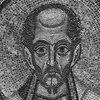Subtotal: $
Checkout
Heap Burning Coals on Your Enemy’s Head
A Church Father takes a closer look at what this unlikely bit of biblical advice might mean, both for the heaper and the heaped.
By John Chrysostom
September 15, 2024
When you have gone out and the devil lays hold of you either by means of anger or vainglory, or any other passion, you may call to remembrance the teaching which you have received here and may be able easily to shake off the grasp of the evil one. Do you not see the wrestling-masters in the practicing grounds, who, after countless contests having obtained exemption from wrestling on account of their age, sit outside the lines by the side of the dust and shout to those who are wrestling inside, telling one to grasp a hand, or drag a leg, or seize upon the back, and by many other directions of that kind, saying, “If you do so and so you will easily throw your antagonist,” they are of the greatest service to their pupils? Even so do thou look to your training master, the blessed Paul, who after countless victories is now sitting outside the boundary, I mean this present life, and cries aloud to us who are wrestling, shouting out by means of his Epistles, when he sees us overcome by wrath and resentment of injuries, and choked by passion; “If your enemy is hungry, feed him; if he is thirsty, give him drink” (Rom. 12:20) – a beautiful precept full of spiritual wisdom, and serviceable both to the doer and the receiver.
But the remainder of the passage causes much perplexity, and does not seem to correspond to the sentiment of him who uttered the former words. And what is the nature of this? The saying that “by so doing you shall heap coals of fire on his head.” For by these words he does a wrong both to the doer and the receiver: to the latter by setting his head on fire, and placing coals upon it; for what good will he get from receiving food and drink in proportion to the evil he will suffer from the heaping of coals on his head? Thus then the recipient of the benefit is wronged, having a greater vengeance inflicted on him, but the benefactor also is injured in another way. For what can he gain from doing good to his enemies when he acts in the hope of revenge? For he who gives meat and drink to his enemy for the purpose of heaping coals of fire on his head would not become merciful and kind, but cruel and harsh, having inflicted an enormous punishment by means of a small benefit. For what could be more unkind than to feed a person for the purpose of heaping coals of fire on his head? This then is the contradiction: and now it remains that the solution should be added, in order that by those very things which seem to do violence to the letter of the law you may clearly see all the wisdom of the lawgiver. What then is the solution?

Godfried Schalcken, A Boy Blowing on a Firebrand to Light a Candle, oil on canvas, ca. 1695.
That great and noble-minded man was well aware of the fact that to be reconciled quickly with an enemy is a grievous and difficult thing; grievous and difficult, not on account of its own nature, but of our moral indolence. But he commanded us not only to be reconciled with our enemy, but also to feed him, which was far more grievous than the former. For if some are infuriated by the mere sight of those who have annoyed them, how would they be willing to feed them when they were hungry? And why do I speak of the sight infuriating them? If anyone makes mention of the persons, and merely introduces their name in society, it revives the wound in our imagination, and increases the heat of passion.
Paul, then, being aware of all these things and wishing to make what was hard and difficult of correction smooth and easy, and to persuade one who could not endure to see his enemy, to be ready to confer that benefit already mentioned upon him, added the words about coals of fire, in order that a man prompted by the hope of vengeance might hasten to do this service to one who had annoyed him. And just as the fisherman surrounding the hook on all sides with the bait presents it to the fishes in order that one of them hastening to its accustomed food may be captured by means of it and easily held fast, even so Paul also wishing to lead on the man who has been wronged to bestow a benefit on the man who has wronged him does not present to him the bare hook of spiritual wisdom, but having covered it as it were with a kind of bait, I mean the “coals of fire,” invites the man who has been insulted, in the hope of inflicting punishment, to confer this benefit on the man who has annoyed him; but when he has come he holds him fast in future, and does not let him make off, the very nature of the deed attaching him to his enemy; and he all but says to him: “If you are not willing to feed the man who has wronged you for piety's sake, feed him at least from the hope of punishing him.” For he knows that if the man once sets his hand to the work of conferring this benefit, a starting-point is made and a way of reconciliation is opened for him.
For certainly no one would have the heart to regard a person continually as his enemy to whom he has given meat and drink, even if he originally does this in the hope of vengeance. For time as it goes on relaxes the tension of his anger. As then the fisherman, if he presented the bare hook would never allure the fish, but when he has covered it gets it unawares into the mouth of the creature who comes up to it: so also Paul if he had not advanced the expectation of inflicting punishment would never have persuaded those who were wronged to undertake to benefit those who had annoyed them. Wishing then to persuade those who recoiled in disgust, and were paralyzed by the very sight of their enemies, to confer the greatest benefits upon them, he made mention of the coals of fire, not with a view of thrusting the persons in question into inexorable punishment, but in order that when he had persuaded those who were wronged to benefit their enemies in the expectation of punishing them, he might afterwards in time persuade them to abandon their anger altogether.
Thus then did he encourage the man who has been wronged; but observe also how he unites again the man who has done the wrong to him who has been provoked. First of all by the very manner of the benefit, for there is no one so degraded and unfeeling as to be unwilling, when he receives meat and drink, to become the servant and friend of him who does this for him; and in the second place through the dread of vengeance. For the passage, “By so doing you shall heap coals of fire on his head,” seems indeed to be addressed to the person who gives the food; but it more especially touches him who has caused the annoyance, in order that through fear of this punishment he may be deterred from remaining continually in a state of enmity, and being aware that the reception of food and drink might do him the greatest mischief if he constantly retains his animosity, may suppress his anger. For thus he will be able to quench the coals of fire. Wherefore the proposed punishment and vengeance both induces the one who has been wronged to benefit him who has annoyed him, and it deters and checks him who has given the provocation, and impels him to reconciliation with the man who gives him meat and drink. Paul therefore linked the two persons by a twofold bond, the one depending on a benefit, the other on an act of vengeance. For the difficulty is to make a beginning and to find an opening for the reconciliation: but when that has once been cleared in whatever way it may be, all which follows will be smooth and easy. For even if at first the man who has been annoyed feeds his enemy in the hope of punishing him, yet becoming his friend by the act of giving him food he will be able to expel the desire of vengeance.
Translated by W. R. W. Stephens. From Nicene and Post-Nicene Fathers, First Series, Vol. 9. Edited by Philip Schaff (Christian Literature Publishing Co., 1889), 228–229. Revised and edited for New Advent by Kevin Knight.
Already a subscriber? Sign in
Try 3 months of unlimited access. Start your FREE TRIAL today. Cancel anytime.







Michael Nacrelli
I agree with Randy. The simplest explanation is most often the best.
Randy Reimold
I always read this verse to simply mean that by acting in love we would cause the other person to burn with shame, which is designed to make one examine ourselves and repent.